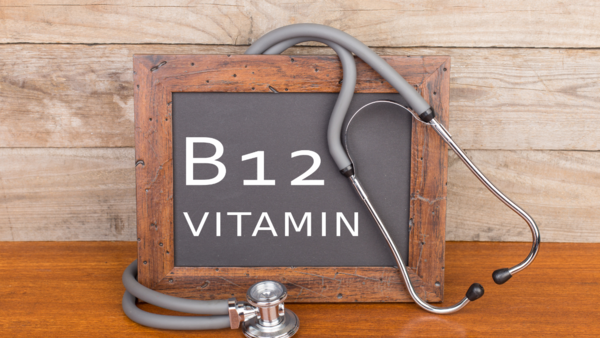Feeling fatigued despite getting enough sleep could be a sign of an underlying health issue. One potential cause is a vitamin B12 deficiency. This essential nutrient plays a critical role in various bodily functions, including DNA synthesis, energy production, and maintaining a healthy nervous system. Shockingly, a 2019 study revealed that approximately 47% of the Indian population suffers from a vitamin B12 deficiency.
Dr. Alok Chopra, a leading cardiologist and functional medicine expert, sheds light on the significance of vitamin B12, its sources, and the risks associated with a deficiency, particularly for vegetarians.

Vitamin B12 is a water-soluble nutrient vital for numerous bodily processes. "It is essential for metabolism, digestion, and overall health," emphasizes Dr. Chopra. It is naturally found in certain foods and is also available as a dietary supplement and prescription medication.
Vitamin B12 is naturally abundant in animal products such as fish, poultry, eggs, and milk. However, it is largely absent in plant-based foods unless they are fortified. "Vegetarians often face challenges in obtaining sufficient B12," notes Dr. Chopra.

While plant-based foods typically lack B12, fortified options like nutritional yeast and certain cereals can provide a reliable source. Dr. Chopra suggests that vegetarians consider supplements or B12-fortified products to meet their daily requirements.
Vitamin B12 is crucial for several key functions within the body:
Despite its importance, vitamin B12 deficiency is prevalent. Common signs and symptoms include:

"Deficiency can be addressed through proper nutrition, intramuscular injections, or oral B12 therapy," states Dr. Chopra.
However, he also cautions against excessive intake of vitamin B12, which can lead to side effects like diarrhea, itching, rashes, headache, dizziness, nausea, and heart failure. Individuals with optic neuropathy, polycythemia, gout, iron or folate deficiency, or low potassium levels should consult a doctor before taking B12 supplements.
Dr. Chopra advises against taking vitamin B12 supplements concurrently with vitamin D. "Vitamin B12 and D should not be taken together as vitamin D is fat soluble and is absorbed better with food, and B12 is water soluble and taken on an empty stomach. The same applies to vitamin C," he explains.
Newer articles
Older articles
 Smith Eyes Grenada Test Return After Injury Recovery
Smith Eyes Grenada Test Return After Injury Recovery
 Google Maps Boosts Navigation Precision with Fused Orientation Provider Update
Google Maps Boosts Navigation Precision with Fused Orientation Provider Update
 Earth Sciences Minister Rijiju Expresses Frustration Over Atos Supercomputer Delay, Jeopardizing Weather Forecast Upgrades
Earth Sciences Minister Rijiju Expresses Frustration Over Atos Supercomputer Delay, Jeopardizing Weather Forecast Upgrades
 Washington Freedom Snatch Last-Ball Win Over Knight Riders in MLC Thriller; Playoff Hopes Soar
Washington Freedom Snatch Last-Ball Win Over Knight Riders in MLC Thriller; Playoff Hopes Soar
 East Africa Rift: Mantle Upwelling Drives Birth of New Ocean, Study Finds
East Africa Rift: Mantle Upwelling Drives Birth of New Ocean, Study Finds
 Colon Cancer: Don't Ignore These 5 Subtle Warning Signs
Colon Cancer: Don't Ignore These 5 Subtle Warning Signs
 Prasidh Krishna Vows to Sharpen Bowling After Costly Leeds Performance
Prasidh Krishna Vows to Sharpen Bowling After Costly Leeds Performance
 Gavaskar Urges India to Replace Thakur with Yadav for Second Test Against England
Gavaskar Urges India to Replace Thakur with Yadav for Second Test Against England
 Vitamin B12 Deficiency: Cardiologist Explains Symptoms, Sources, and Why You're Always Tired
Vitamin B12 Deficiency: Cardiologist Explains Symptoms, Sources, and Why You're Always Tired
 Rishabh Pant's Unconventional Batting Style Is Revolutionizing Cricket, Says Greg Chappell
Rishabh Pant's Unconventional Batting Style Is Revolutionizing Cricket, Says Greg Chappell